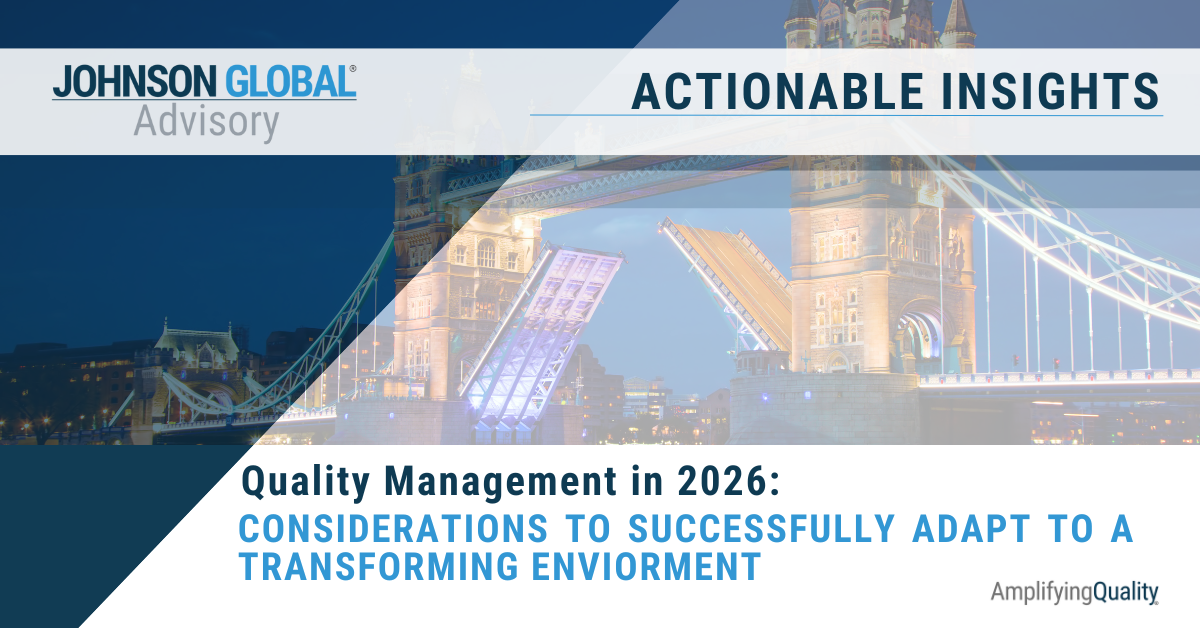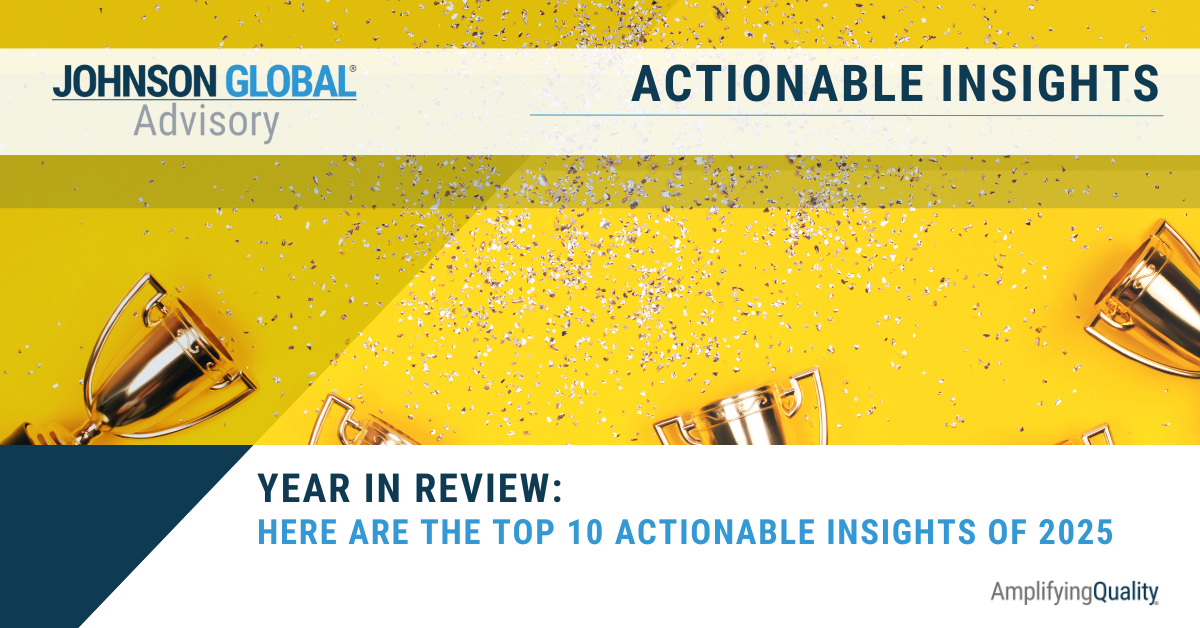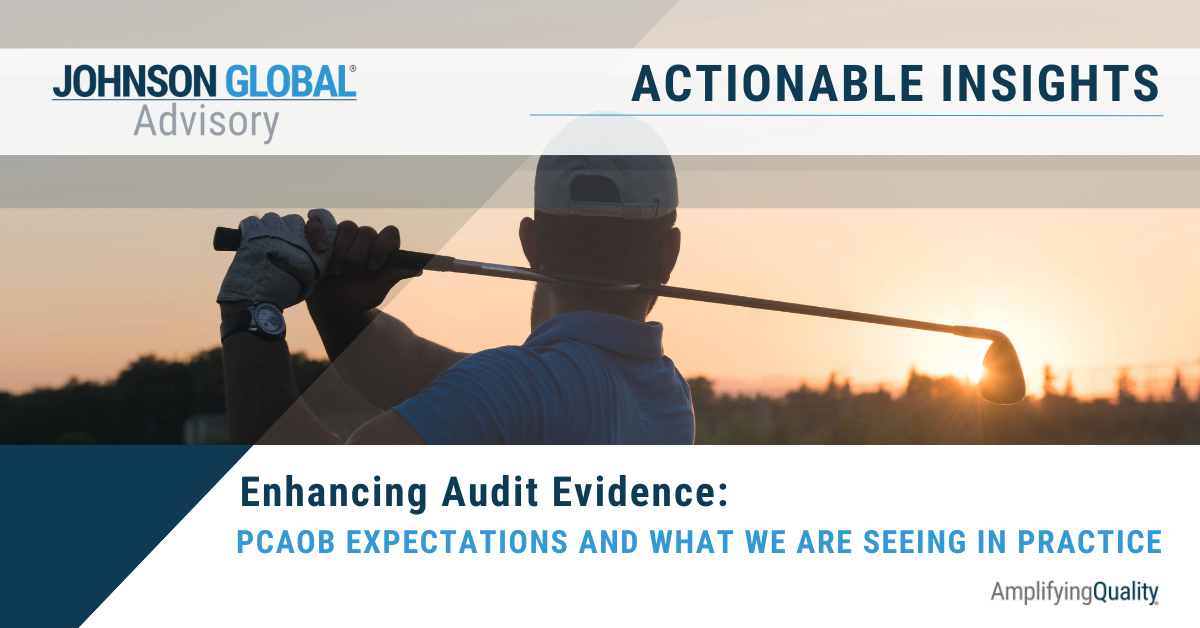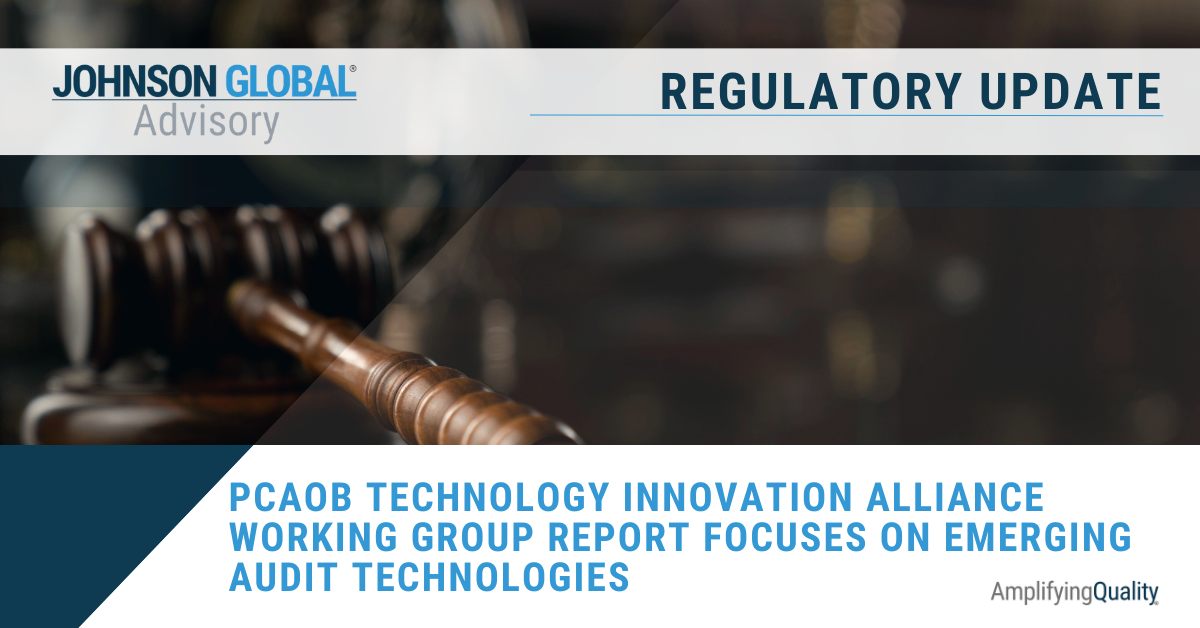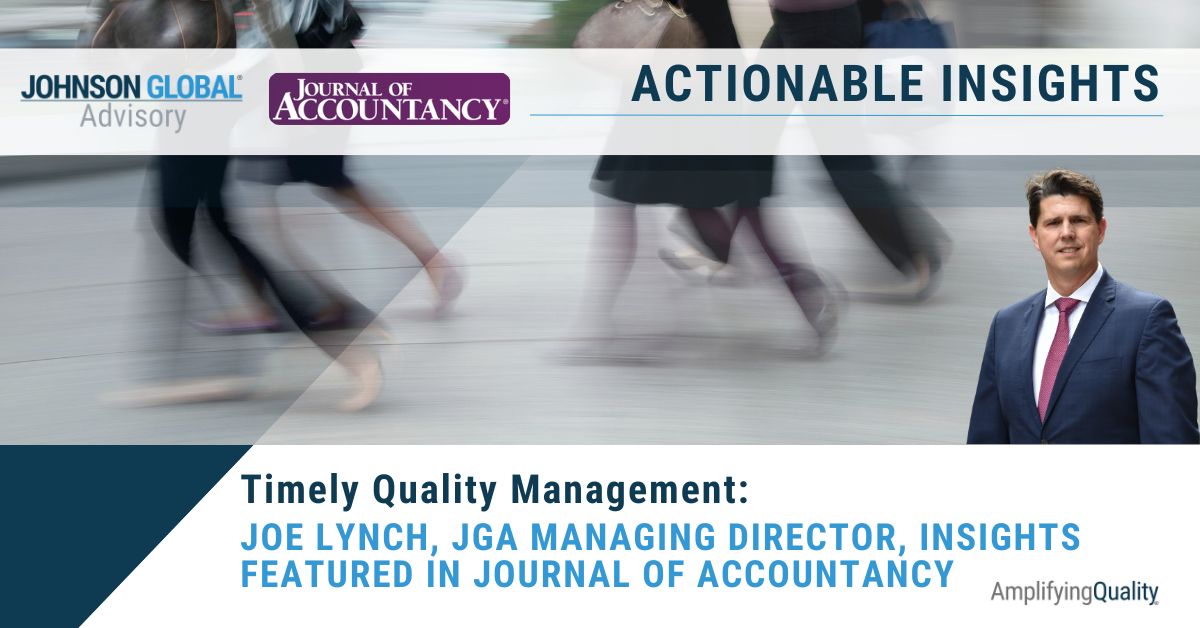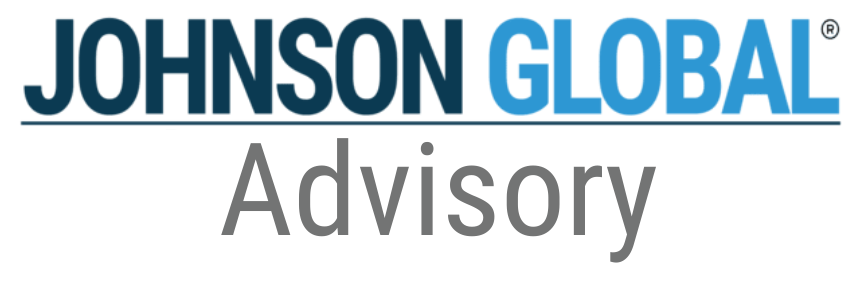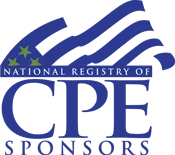PCAOB Observations and JGA's Perspective on GenAI
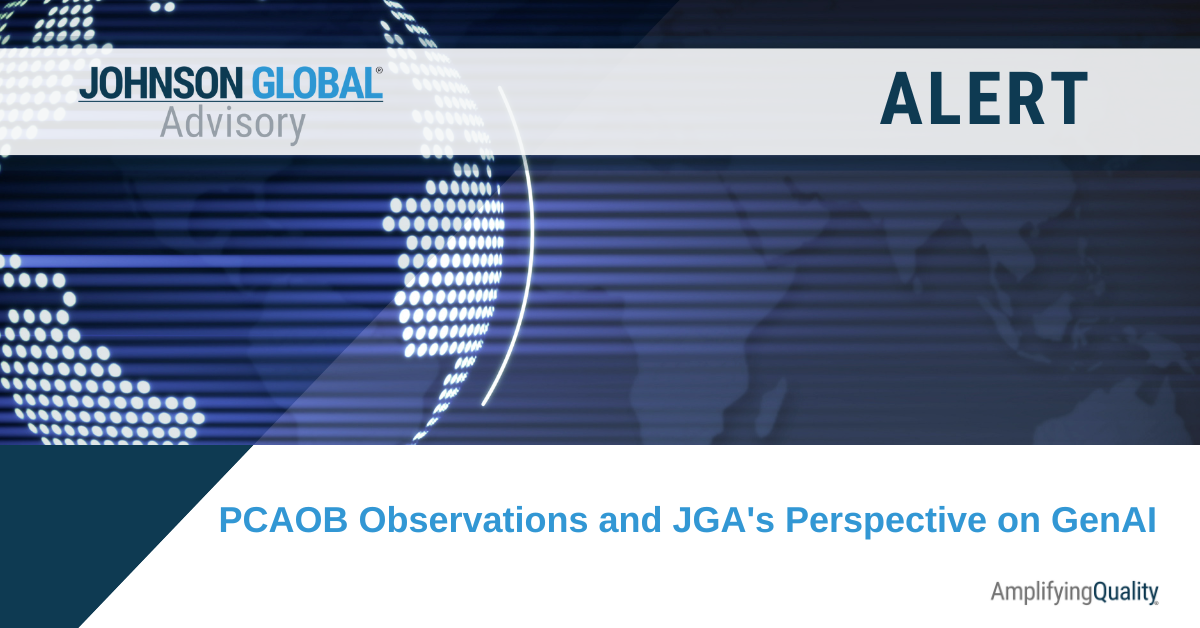
The recent PCAOB spotlight on the integration of GenAI into audits and financial reporting highlights several key observations. GenAI integration is primarily in the early stages, with larger global network firms leading in deployment, mainly for administrative tasks and research activities. There is significant ongoing investment in GenAI tools, often through third-party partnerships, to assist in summarizing accounting policies and performing risk assessments. Data privacy and security are also major concerns, with some firms implementing safeguards to protect confidential information.
The PCAOB emphasizes that human involvement remains crucial, with GenAI augmenting but not replacing human auditors. Supervision and review processes ensure accountability for GenAI-assisted work. However, risks related to the reliability of GenAI outputs, and the auditability of source data are noted, with firms developing specific instructions to improve consistency and accuracy. Among preparers, GenAI is used to draft internal documents and assist in repetitive processes, with human supervision ensuring the accuracy and reliability of these outputs.
At JGA, our perspective based on our interactions with our clients aligns with the PCAOB's observations while offering critical insights.
- We have heard from our peers and concur that the current use of GenAI enhances efficiency in tasks such as data extraction, document review, workflow automation, and compliance monitoring.
- JGA supports the investment in GenAI, highlighting the use of machine learning to predict areas where engagement teams are likely to encounter issues based on historical data allowing for quality control measures. Expert systems are also being utilized to suggest whether to accept a new client based on similar cases and outcomes from other engagements.
- Emphasizing the need for specific controls, JGA concurs with the importance of data privacy and security to ensure data integrity, address biases, and ensure accuracy. Additionally, as firms prepare to implement the new QM standards into their QC process, it is important that firms recognize that the use of GenAI should be included in its risk assessment evaluation.
- While supporting the crucial role of human judgment, we agree with the importance of careful supervision of AI outputs to maintain high audit quality and compliance with regulatory requirements.
- Acknowledging the risks associated with GenAI, we encourage firms to implement transparent and explainable AI models to mitigate biases and inaccuracies. Ultimately, auditors should continue to evaluate and conclude on the relevance and reliability of data used in the conduct of the audit.
- Finally, we agree that GenAI should not be seen as a tool that minimizes or removes the auditor's responsibility for providing reasonable assurance on financial statements. GenAI should not be seen as a tool that minimizes or takes away the responsibilities of the partner signing the audit opinion - at the end of the day, the engagement partner still has the ultimate responsibility that the audit opinion provides reasonable assurance that the financial statements are fairly presented.
In conclusion, JGA underlines a cautious yet optimistic approach to integrating GenAI in audits, emphasizing robust controls, human oversight, and continuous investment to enhance audit quality and compliance. The extent and use of GenAI is going to continue to grow all around the globe in every industry and profession. And this is true for the auditing profession as well. Leadership of firms must continue to embrace the continued use of GenAI but do so making sure they are identifying and evaluating risks related to the use of GenAI.
For further insights on using technology in your audits, read our recent JGA Advisor article on JGA Team Perspectives: System of Quality Management – Using Technology in Your Practice and Audits. Also, feel free to reach out to us with questions at any time.
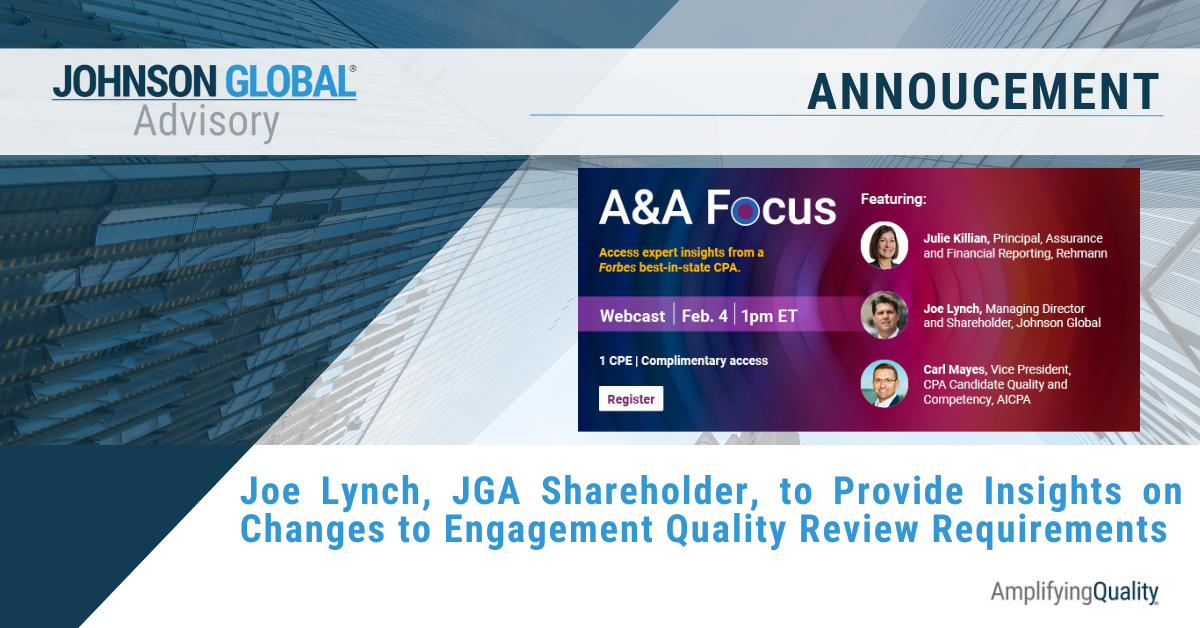
Joe Lynch, JGA Shareholder, to Provide Insights on Changes to Engagement Quality Review Requirements
